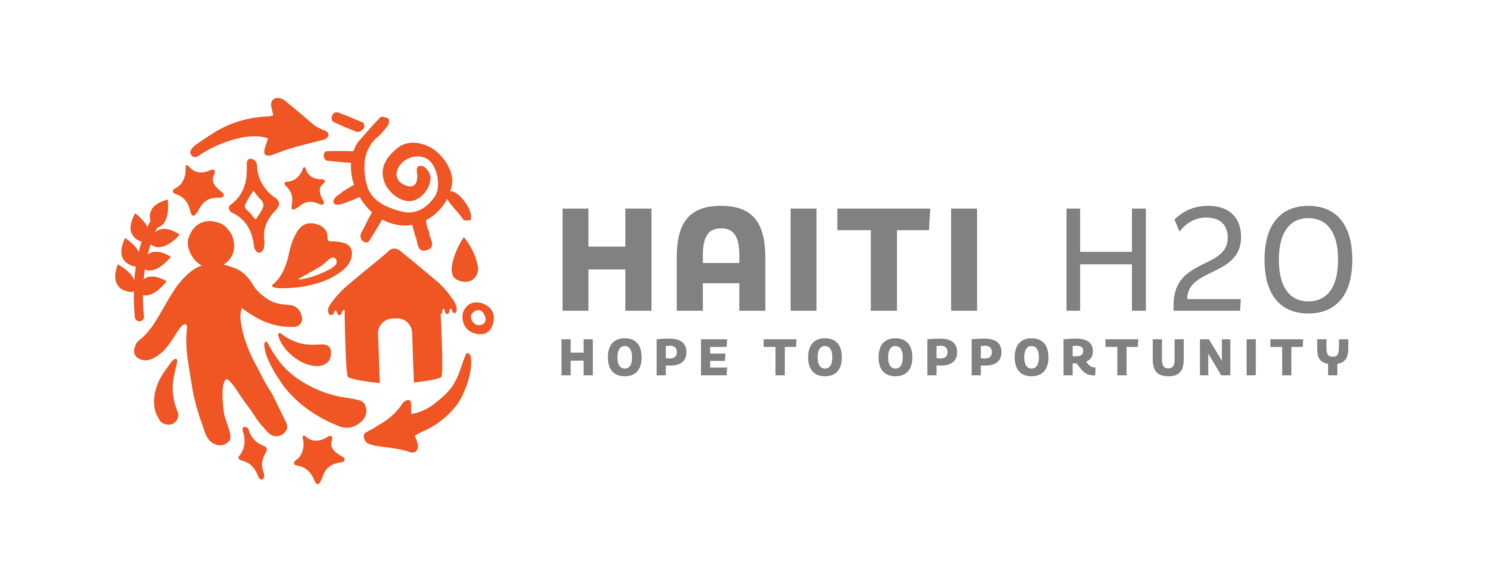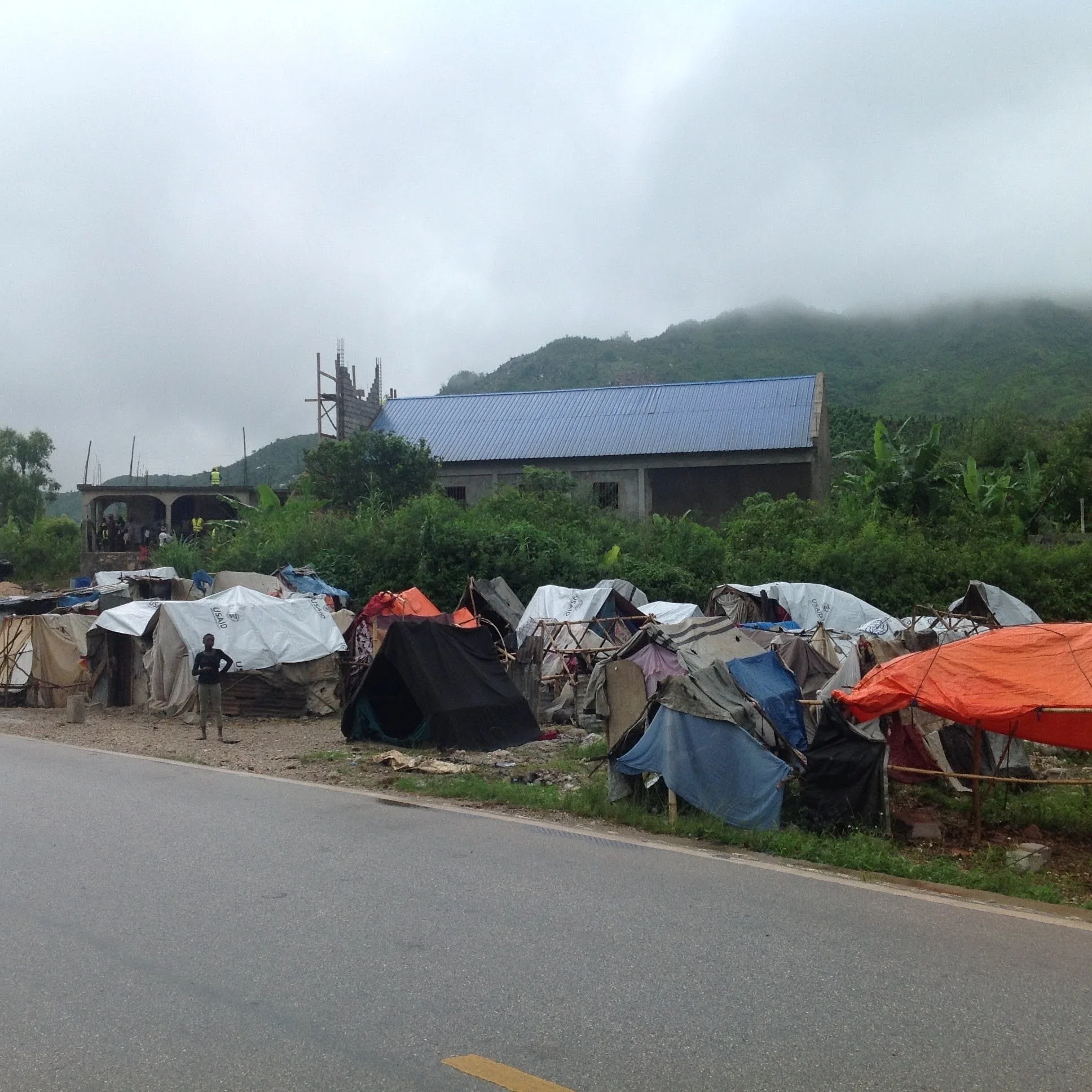In the Midst of Darkness
In October, I had the opportunity to visit with our partners in Haiti. Our in-country directors, Jules and Jeanne, thought it best to catch a flight from Port-Au-Prince and fly direct to Les Cayes so we could avoid travelling on the dangerous roads where there had been so many roadblocks and kidnappings. Arriving on a small plane, we soon headed off to visit the four communities Haiti H20 has partnerships with.
We travelled and were confronted not by gangs, but by the devastating destruction lingering from the earthquake. Homes and businesses were reduced to twisted rebar and piles of block and concrete. Long lines of cars and motorcycles hoping for some gas were lined up outside gas stations for hundreds of yards. Most gas stations were closed since fuel trucks were not able to travel along the road safely to deliver gas. The road up to Plain Matin had been reduced to a single lane with house-sized boulders scattered on the road that had fallen from the quake the month before.
When arriving at our destination, we delivered much-needed supplies of rice, soap, and oil to each of the communities. People quickly gathered to lend hands in unloading our truck and expressed thanks since no one from the government had visited them since the earthquake. Outside the church in Plain Matin, a group of around 50 people had created make-shift housing of tin, plastic tarps, and wood. These tiny shanties were the only structures to shelter these families from rain, sun, and wind.
Full disclosure: There was a deep sense of despair among our Haitian friends. I heard stories of partners not feeling safe to leave their homes because of violence on the streets; disillusionment abounded regarding the presidential assassination, economic turmoil, and gang-led kidnappings and violence. Amid all the darkness that was in the air, a flash of hope suddenly came through. Jeanne had mentioned that in December, around eight couples were getting married at the church at Plan Matin.
In Haiti—where resources are very limited—when young couples want to get married, they get communal. The church community will host a big “Bon Fet” or big party that doesn’t just celebrate one couple, but instead hosts a celebration and ceremony for many couples.
Amidst economic, cultural, and political disruption, couples are doing everyday things like getting married and celebrating love commitments.
Wedding in Haiti
If we consider the story of Israel, we catch a glimpse of hope in the midst of darkness. In Jeremiah 32, Israel is on the verge of complete devastation by the hands of the Babylonians. A word from God comes to the Prophet Jeremiah that his cousin is going to come and offer him the “opportunity” to purchase some family land. Since “family property must not pass into the hands of outsiders” (v. 7) and Jeremiah was one of the closest kin around, it was to be offered to him first.
Here is the point: The land that was to be sold was currently being occupied by the ruthless Babylonians. It seemed that dear cousin Hanamel was very in tune to the devastation all around and looked to head into exile with some silver in his pockets.
And that is what happened. Jeremiah listens to God, goes to the gates during this tumultuous time and weighs out 17 shekels of silver, signs the deed, and has it witnessed by the elders.
Why? Why did he seem to waste such precious resources during devastating times? Jeremiah offers perspective on this transaction. During such despair and loss—during a time of overwhelming homelessness and violence—Jeremiah hears that “houses and fields and vineyards will one day possess this land” (v. 15). In such an extraordinary time, the Prophet was asked to do such an ordinary thing as buy some land.
In the mountain village of Plain Matin, I too witnessed a hope-filled sign.
In extraordinary times of devastation and despair, people still gather to celebrate love, make commitments before witnesses, and throw a party that points to a hopeful life that exists beyond the current devastation. This “everyday stuff” comes from hopeful people who know that God’s faithfulness will be known. They know that He hears their cries and His light will indeed shine through the darkness.
As we left Haiti on this trip, we were indeed aware of the tremendous despair and injustice present. But we also left with a glimmer of hope expressed in the celebration of community.




